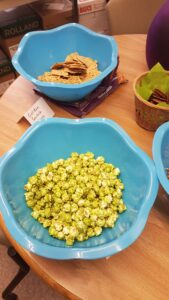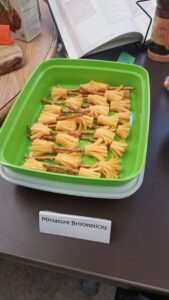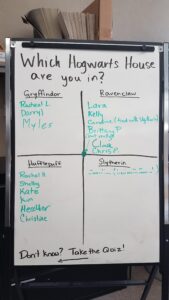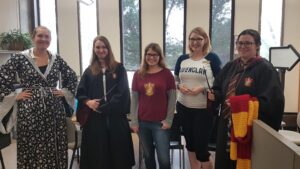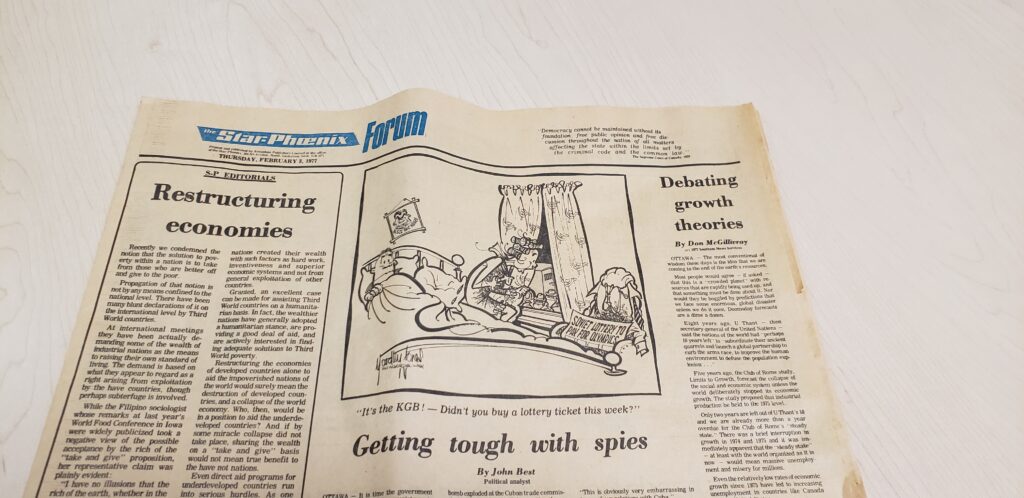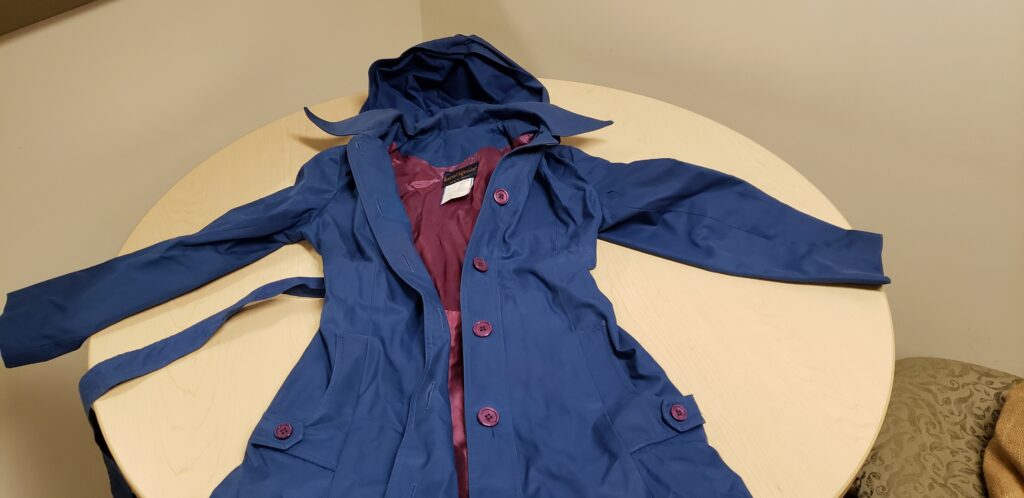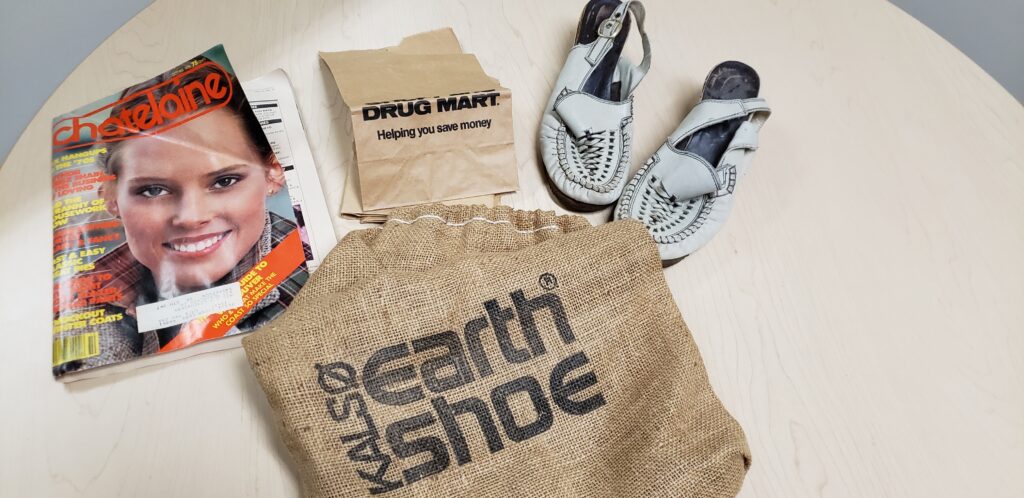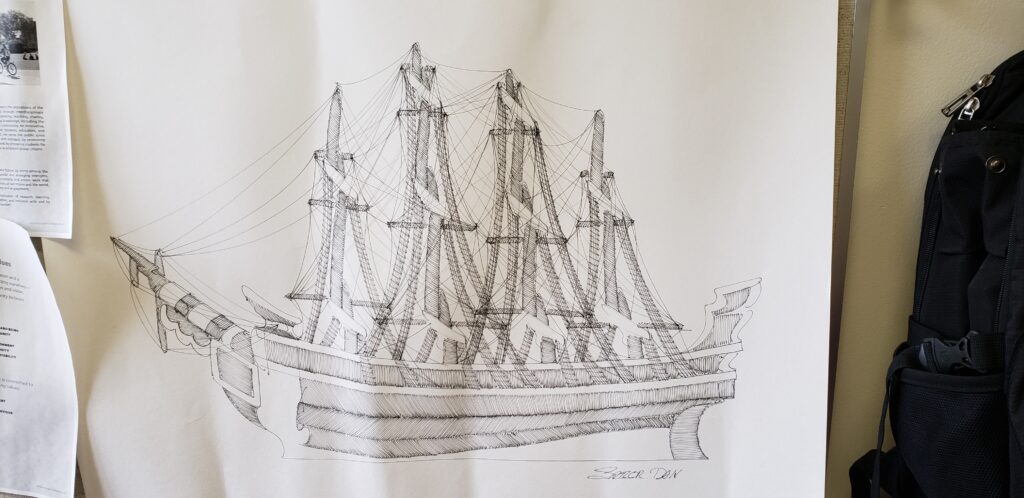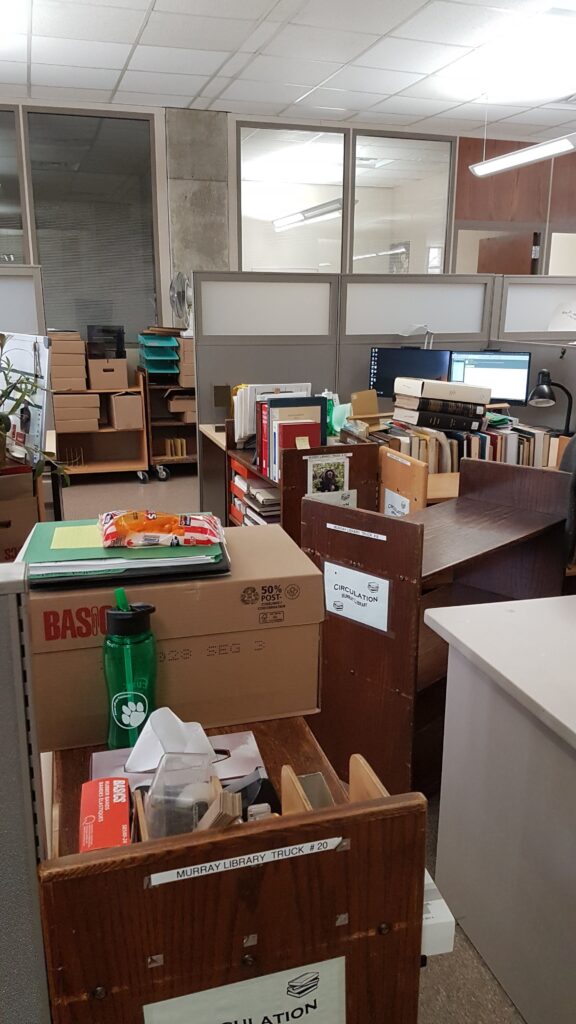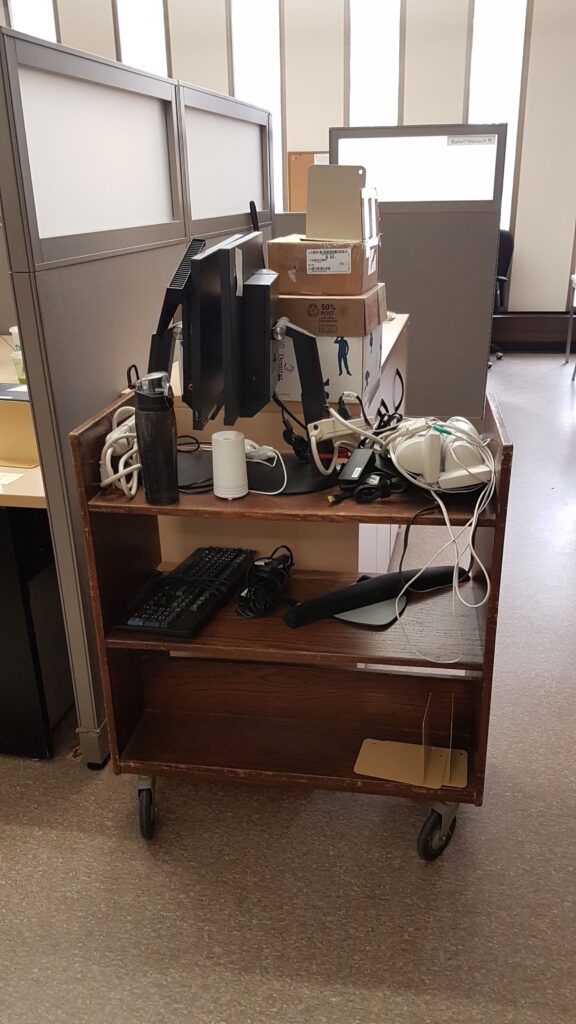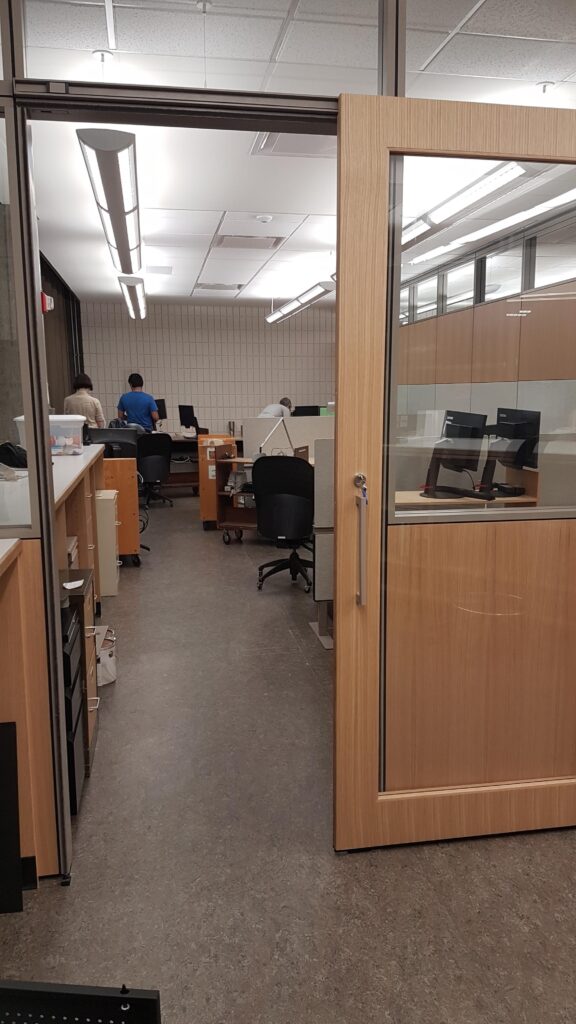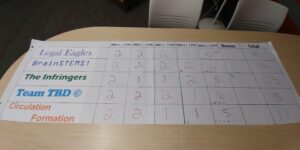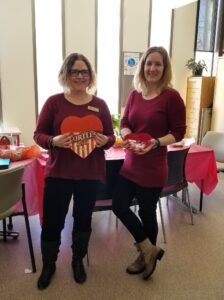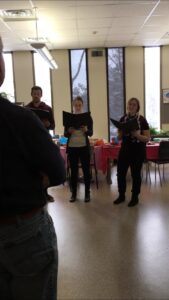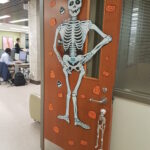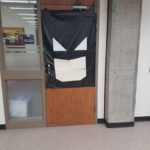The end of summer is often a painful time. Not only does it signal the arrival of cold weather and thousands of new students asking where Room 299 is, but it is also the beginning of Pumpkin Spice Latte season at Starbucks (yuck). Fortunately, at the Murray Library, there is one nice end-of-summer tradition that makes it all worthwhile. I am speaking of course, of the Annual Murray Library Mini Golf Tournament of Champions, now in its 6th year.
If you’re new and you’ve never heard of the Annual Murray Library Mini Golf Tournament of Champions, feel free to catch up by reading Branching Out posts from years past: 2018, 2017, 2016 (no post) 2015, and 2014. The essential facts to be aware of are that there’s a Best Golfer award (often won by Duane, but last year Cathy was the champ) and there’s a Worst Golpher award (often won by Amy, but last year Kelly and Laura H took that prize in a tie). The competition to win these awards is often quite fierce. Another thing to be aware of is that in all the years past, no guest has ever won a prize. It’s always been library employees who’ve won. (Remember this – it will become relevant later on in the story.)
This year, to make things even more exciting, we decided to add a team element to the mix. The names of library staff members and their guests were all put into a hat, and foursomes were picked randomly. Teams were asked to choose names, and were encouraged to dress thematically. With the addition of teams, we added two new awards to the contest: Best Team and Werst Teem.
The official rules of the tournament, which were written out in a very official Murray Social Committee email, are as follow:
Due to a rule invented by Laura Harris last year, anyone who worked in Murray 122/134/G6 in 2019 or who still has a permanent line in Murray is eligible to play. Guests can play, but are not eligible to win the Best Golfer and Worst Golpher trophies. [Probably? It’s never come up before.] Guest scores will however count for the new team trophies.
(Remember these rules. They will become relevant later on in the story.)


